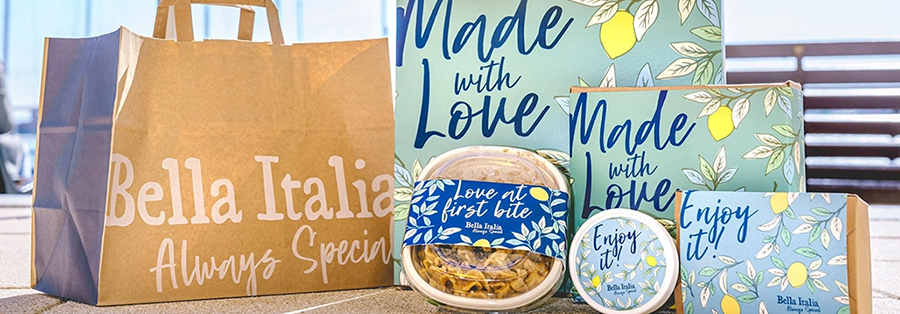Climate change, exploitation of our natural resources and unsustainable farming practices all seriously threaten the long-term sustainability of our planet. We need to ensure that in everything we and our business partners do, we put more back into the environment than we take out.
Water is fundamental to our business operations as without it we are unable to serve food and drink to our guests in a safe and clean environment. It is also material to our supply chain in growing and processing food, drink and other supplies such as our cotton uniforms.
We are committed to using less water across all our business operations by implementing water conservation measures and championing water stewardship. These include:
It is clear that today’s food systems are under increasing pressure from climate change, a growing market demand for limited resources and consumers expecting greater transparency and reassurance that businesses are managing their supply chains sustainably.
We believe that a secure and sustainable supply chain builds a more resilient business able to manage the impact of any change more successfully and respond to the needs of our guests and other important stakeholders.
In practice, this means working with our suppliers to take action to prevent deforestation and protect the world’s natural resources. We are committed to sourcing 100% of our key commodities: palm oil, soy, fish, seafood, tea, coffee, and timber to the relevant independent sustainability certified standards. We are making good progress with this with each commodity having a set of policy requirements to help suppliers understand how they need to implement more sustainable practices and to what certification standard. Due to recent supply chain challenges we are currently using a plantain on our menu that contains genetically modified soya oil as a temporary measure.
Our guests want to be confident that the people growing and making our products and the people serving in our restaurants are well treated, not being exploited or exposed to unsafe working conditions.
We expect our suppliers to comply with our Ethical Trading Policy which incorporates the Ethical Trading Initiative (ETI), an alliance of companies, non-governmental organisations (NGOs) and trade unions, Base Code.
The ETI promotes and improves the implementation of corporate codes of practice, which cover supply chain working conditions. Its goal is to ensure that the working conditions of workers producing for the UK market meet or exceed international labour standards.
Our policy sets out the labour standards we expect our suppliers to meet. It covers fair terms of trading, protection of children, worker health and safety, equal opportunities, freedom of association, freedom of employment, hours of work and wages.
All suppliers are required to ensure that both they and their own producers are able to provide due diligence on ethical supply chain practices including audit inspections covering labour standards, health and safety, environment and business ethics. This is central to our own compliance with UK’s Modern Slavery Act 2015 requirements preventing slavery and human trafficking and we will do all we can within our supply chain to ensure this remains the case.
We recognise that we have a responsibility to support our meat and dairy suppliers in responsibly and humanely rearing their animals. And this responsibility informs our meat and dairy purchasing through policy requirements for each animal species that are based on animal welfare legislation, the globally recognised Five Freedoms and independently verified farm assurance standards.
100% of our shell eggs are sourced from free range eggs, and 98% of eggs used in manufactured ingredients are sourced from cage free eggs, ensuring ethical and humane treatment of the animals while promoting sustainable and responsible farming practices.
We are also a signatory to the Better Chicken Commitment, a pledge to introduce higher welfare standards for all chickens sourced in our supply by 2026, including:
We believe that the health and welfare of animals is paramount and sick animals must be treated. We support the responsible, controlled use of antibiotics for targeted treatment of any illness and not routinely applied to prevent disease. We expect farmers, veterinary experts and our meat suppliers to work together to ensure that administering, measurement and monitoring of antibiotic use complies with all relevant legislation and best practice.
Halal Sourcing Commitment
We are committed to sourcing meat and poultry products responsibly and ethically. All products sourced from Halal-certified suppliers must come from animals that are pre-stunned prior to slaughter, in full compliance with UK and EU animal welfare legislation.









Food delivery is an increasingly important part of our business and by choosing BioPak we have contributed to positive change.
So far, we have avoided adding 87,870kg of plastics into circulation. By choosing more sustainable alternatives to finite fossil-based plastics, we are helping fight plastic pollution.
Through working with BioPak, we have planted 522 trees with rainforest rescue, which help sequester carbon from the atmosphere
*As of July 24